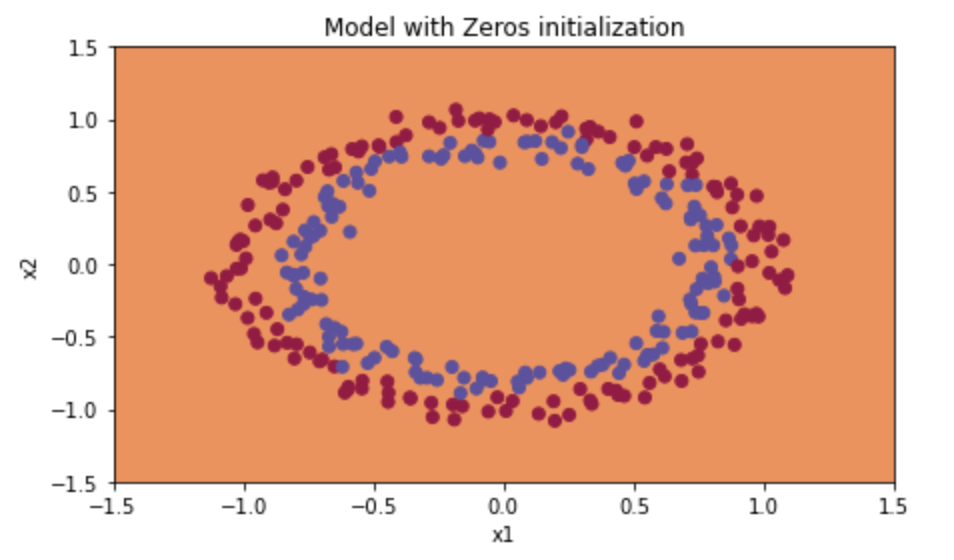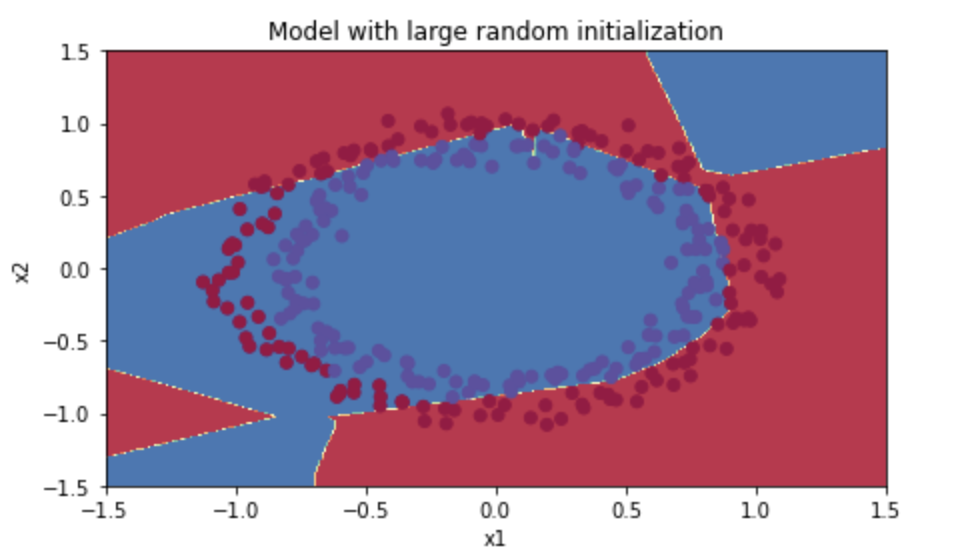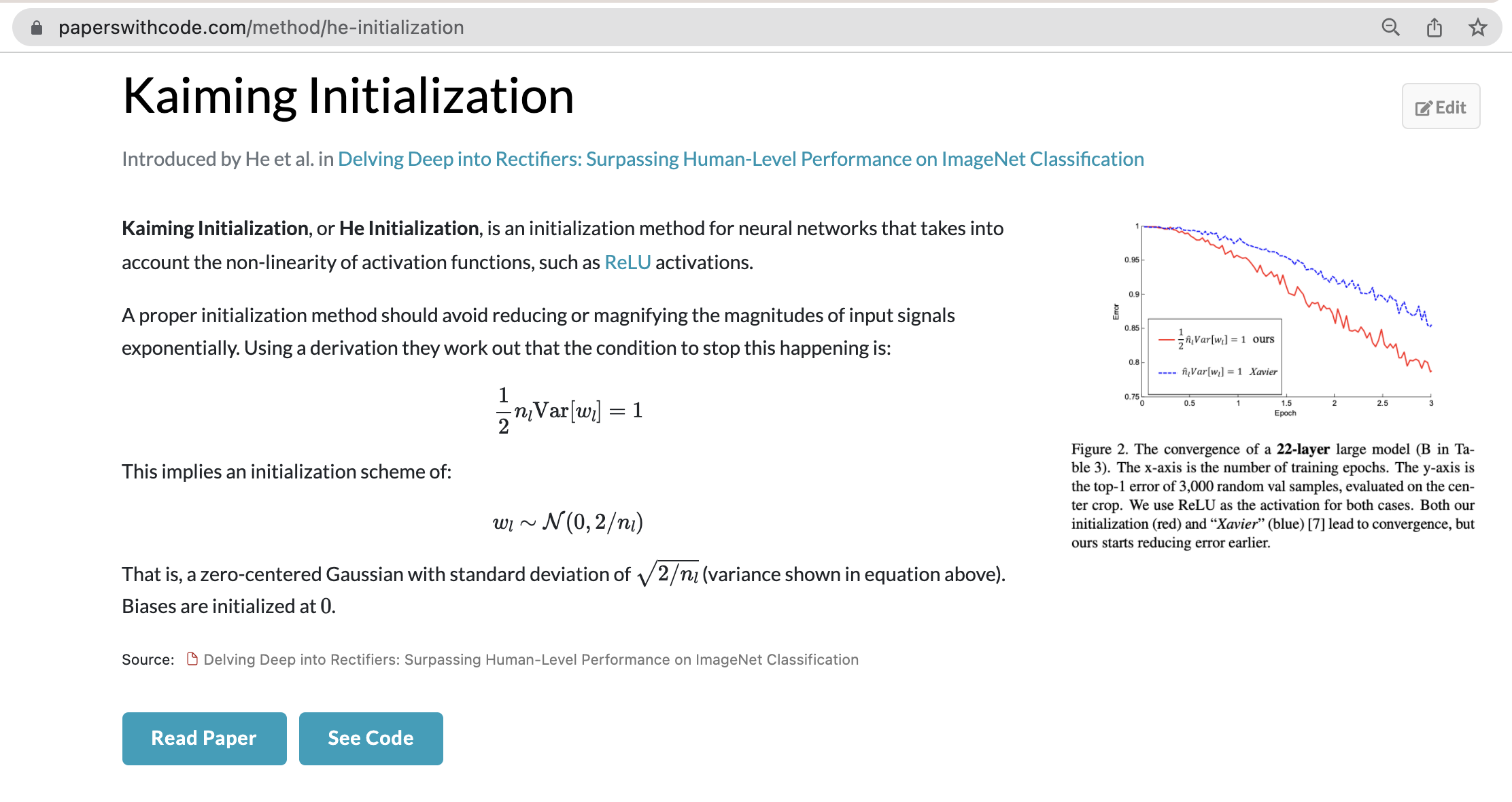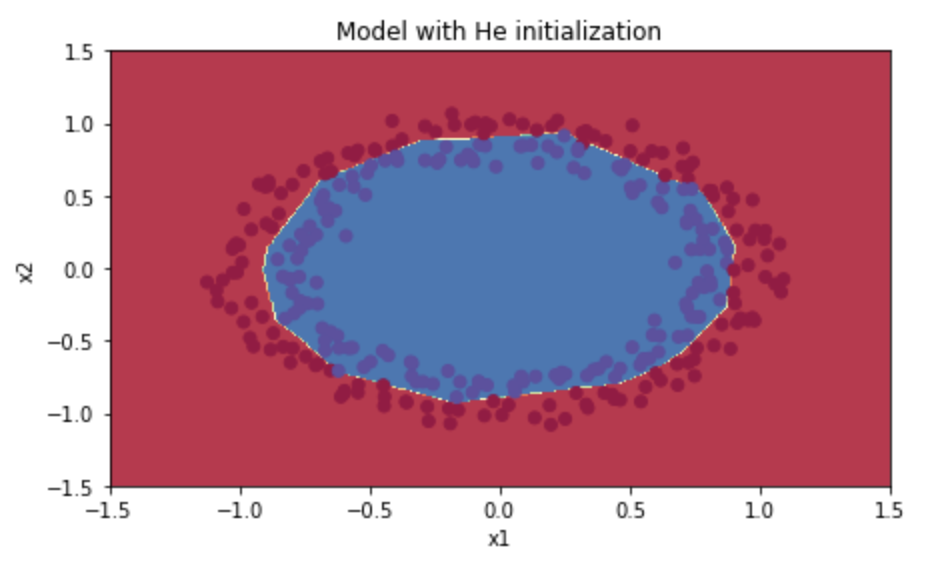Deep Learning Notes 04 | Weight Initialization and Gradient Check for DNN
Contents
1. Weight Initialization
A well chosen initialization can:
- Speed up the convergence of gradient descent
- Increase the odds of gradient descent converging to a lower training (and generalization) error
Gradient Exploding and Vanishing
Training a neural network requires specifying an initial value of the weights. A well chosen initialization method will help learning.
- if W > I (Identity Matrix): in DNN, the activations can explode
- if W < I: the activations will decrease exponentially and then vanish
Zero Initialization:
- this will fail to classify
|
|
Output:

- Train Accuracy: 50%
Random Initialization:
Poor initialization can lead to vanishing/exploding gradients, which also slows down the optimization algorithm.
parameters['W' + str(l)] = np.random.randn(layers_dims[l], layers_dims[l-1])*10parameters['b' + str(l)] = np.zeros((layers_dims[l], 1))
|
|
Output:

- Train Accuracy: 83%
He Initialization
This initializes the weights to random values scaled according to a paper by He et al., 2015.
parameters['W' + str(l)] = np.random.randn(layers_dims[l], layers_dims[l-1])*math.sqrt(2./layers_dims[l-1])parameters['b' + str(l)] = np.zeros((layers_dims[l], 1))*math.sqrt(2./layers_dims[l-1])

|
|
Output:

- Train Accuracy: 99%
2. Gradient Check
- Don’t use in training - ONLY to debug
- If algorithm fails Gradient Check, look at components to try to identify bug
- Remember Regularization
- Doesn’t work with Dropout
- Run at Random Initialization; perhaps again after some training